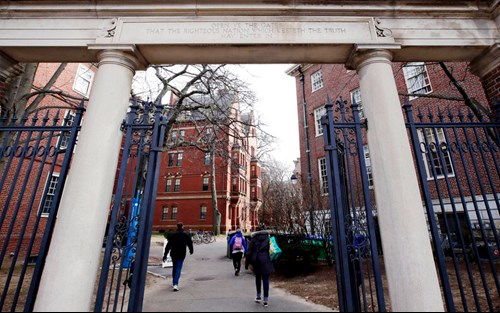While University of Pennsylvania President Liz Magill resigned in the wake of her comments to Congress on the topic of antisemitism, reports surfaced Monday night that Harvard President Claudine Gay is expected to retain her position due in large part to the internal bickering of Harvard alums.
Billionaire hedge fund manager Bill Ackman said Monday that Gay is likely to stick around because the school’s governing board doesn’t want people to believe Ackman is running the show.
“I have been told now by two reporters that one of the factors that made it challenging for the Harvard board to fire Gay was that they were concerned it would look like they were kowtowing to me,” Ackman wrote on X.
How does a campus cheer for terrorists?
The rise in public hatred for Jews since the murderous attacks on Oct. 7 has only revealed a sentiment that had long been simmering, Ira Stoll, founder and editor of FutureofCapitalism.com, said on Washington Watch Monday.

Stoll, a veteran journalist, is a Harvard graduate and former editor of the student newspaper, The Harvard Crimson.
“These campuses, particularly the so-called elite ones, have such a profound ideological tilt," Stoll told show host Tony Perkins. "Studies have shown that maybe 1-5% or maybe 10% of the Harvard faculty or even students, are conservative or Republican, and the rest are far left, progressive, liberal."
It is that "far-left atmosphere" on campus, he said, that has allowed anti-Israel sentiments to eventually blossom into sympathizing with Hamas terrorists.
Students, though reaching the age of legal-adult status, are taking their cues from the “grown-ups” on the campuses, Stoll said.
“There are professors, Harvard-tenured professors, speaking at their rallies," he pointed out. "And if you go through the events that the university is staging to try to put this in academic context, you're getting the same message about so-called settler colonialism."
 That accusation of "colonialism" means the Jews illegally took over the Middle East even though they have lived there since biblical times.
That accusation of "colonialism" means the Jews illegally took over the Middle East even though they have lived there since biblical times.
Few academic communities have expressed support for Israel though there have been some. Presidents of some Jewish, Catholic, Protestant, HBCU and public schools co-signed a letter of support a week and a half after the attacks.
Another option for higher ed: competition
Hate remains on many other campuses – not to mention safety concerns for Jewish students – but economic realities may be the path to better times.
“Luckily, the United States has a fairly robust competitive market for higher education,” Stoll said. “Hillsdale College had an op-ed in the Wall Street Journal saying to Jewish families, ‘Your children are safe here.’ People who care about this stuff may look elsewhere than the Ivy League. They may go to the South for public colleges and universities.
“Also, there are constituencies applying pressure: the alumni, Congress. Faculties don’t want any grown-up supervision at all, but at some point trustees and government are going to have to assert themselves or we’ll just see these trends continue," Stoll said.







